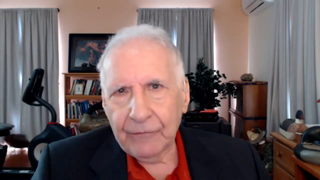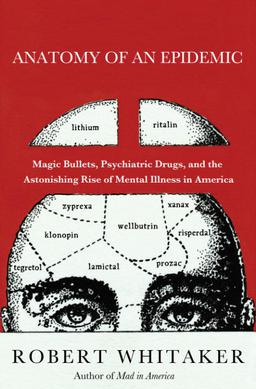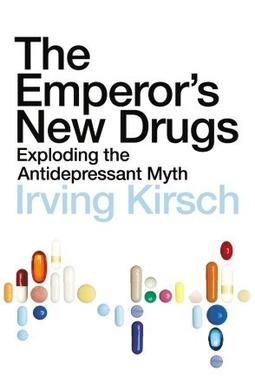Related Research Articles
Anti-psychiatry, sometimes spelled antipsychiatry, is a movement based on the view that psychiatric treatment can be often more damaging than helpful to patients. The term anti-psychiatry was coined in 1912, and the movement emerged in the 1960s, highlighting controversies about psychiatry. Objections include the reliability of psychiatric diagnosis, the questionable effectiveness and harm associated with psychiatric medications, the failure of psychiatry to demonstrate any disease treatment mechanism for psychiatric medication effects, and legal concerns about equal human rights and civil freedom being nullified by the presence of diagnosis. Historical critiques of psychiatry came to light after focus on the extreme harms associated with electroconvulsive therapy and insulin shock therapy. The term "anti-psychiatry" is in dispute and often used to dismiss all critics of psychiatry, many of whom agree that a specialized role of helper for people in emotional distress may at times be appropriate, and allow for individual choice around treatment decisions.
The American Psychiatric Association (APA) is the main professional organization of psychiatrists and trainee psychiatrists in the United States, and the largest psychiatric organization in the world. It has more than 38,000 members who are involved in psychiatric practice, research, and academia representing a diverse population of patients in more than 100 countries. The association publishes various journals and pamphlets, as well as the Diagnostic and Statistical Manual of Mental Disorders (DSM). The DSM codifies psychiatric conditions and is used mostly in the United States as a guide for diagnosing mental disorders.

David HealyFRCPsych, a professor of psychiatry at Bangor University in the United Kingdom, is a psychiatrist, psychopharmacologist, scientist and author. His main areas of research are the contribution of antidepressants to suicide, conflict of interest between pharmaceutical companies and academic medicine, and the history of pharmacology. Healy has written more than 150 peer-reviewed articles, 200 other articles, and 20 books, including The Antidepressant Era, The Creation of Psychopharmacology, The Psychopharmacologists Volumes 1–3, Let Them Eat Prozac and Mania: A Short History of Bipolar Disorder.
Pharmaceutical marketing is a branch of marketing science and practice focused on the communication, differential positioning and commercialization of pharmaceutical products, like specialist drugs, biotech drugs and over-the-counter drugs. By extension, this definition is sometimes also used for marketing practices applied to nutraceuticals and medical devices.

Peter Roger Breggin is an American psychiatrist and critic of shock treatment and psychiatric medication and COVID-19 response. In his books, he advocates replacing psychiatry's use of drugs and electroconvulsive therapy with psychotherapy, education, empathy, love, and broader human services.
Pharmaceutical sales representatives or Medical sales respresentatives are salespeople employed by pharmaceutical companies to persuade doctors to prescribe their drugs to patients. Drug companies in the United States spend ~$5 billion annually sending representatives to doctors, to provide product information, answer questions on product use, and deliver product samples. These interactions are governed according to limits established by the Code on Interactions with Health Care Professionals, created by the Pharmaceutical Research and Manufacturers of America (PhRMA). This code came into practice in 2002 and has since been updated to help define ethical interactions between health care professionals and the pharmaceutical companies

Robert Whitaker is an American journalist and author, writing primarily about medicine, science, and history. He is the author of five books, three of which cover the history or practice of modern psychiatry. He has won numerous awards for science writing, and in 1998 he was part of a team writing for the Boston Globe that was shortlisted for the 1999 Pulitzer Prize for Public Service for a series of articles questioning the ethics of psychiatric research in which unsuspecting patients were given drugs expected to heighten their psychosis. He is the founder and publisher of Mad in America, a webzine critical of the modern psychiatric establishment.

Desvenlafaxine, sold under the brand name Pristiq among others, is a medication used to treat depression. It is an antidepressant of the serotonin-norepinephrine reuptake inhibitor (SNRI) class and is taken by mouth. It is recommended that the need for further treatment be occasionally reassessed. It may be less effective than its parent compound venlafaxine, although some studies have found comparable efficacy.

Peter Rost is an American former drug marketing executive who is most known for taking public stances critical of the pharmaceutical industry as an "insider" and whistleblower. He sued his last two pharmaceutical employers, Wyeth and Pfizer, the latter of which fired him in 2005. At Wyeth, he uncovered tax evasion practices, and after informing senior company executives, was transferred from Sweden to a post in New Jersey. Rost sued the company, saying that the transfer was a retaliatory demotion, though the company said it was a promotion. Rost settled with Wyeth for an undisclosed amount in 2003. At Pfizer, Rost filed a qui tam suit disclosing off-label marketing of Genotropin at Pharmacia prior to its purchase by Pfizer. The U.S. Department of Justice declined to join in Rost's suit as the marketing violations had already been disclosed to the Department by Pfizer. Rost was eventually fired by Pfizer, and sued for wrongful dismissal, but this lawsuit was summarily dismissed by the court based on evidence that Pfizer had decided to fire Rost prior to discovery of his whistleblowing activities. Since then, Rost has worked outside the pharmaceutical industry, as a public speaker, blogger, writer, and litigation consultant.

Keith Russell Ablow is an American author, life coach, former television personality, and former psychiatrist. He is a former contributor for Fox News Channel and TheBlaze.

Martin Paul Whitely is a mental health researcher, author and was a Labor member of the Western Australian Legislative Assembly from February 2001 until he retired from state politics in March 2013. During his parliamentary and academic research career Whitely has been a prominent critic of increasing child mental health medication prescribing rates.
Frederick King Goodwin was an American psychiatrist and Clinical Professor of Psychiatry at the George Washington University Medical Center, where he was also director of the Center on Neuroscience, Medical Progress, and Society. He was a specialist in bipolar disorder and recurrent depression.

The Citizens Commission on Human Rights International (CCHR) is an anti-psychiatry lobbying organization established in 1969 by the Church of Scientology and psychiatrist Thomas Szasz. Headquartered in Los Angeles, California, its stated mission is to "eradicate abuses committed under the guise of mental health and enact patient and consumer protections." It is regarded by most non-Scientologists as a Scientology front group whose purpose is to push the organization's anti-psychiatry agenda.

Anatomy of an Epidemic: Magic Bullets, Psychiatric Drugs, and the Astonishing Rise of Mental Illness in America is a book by Robert Whitaker published in 2010 by Crown. Whitaker asks why the number of Americans who receive government disability for mental illness approximately doubled since 1987.

Wyeth was a pharmaceutical company until it was purchased by Pfizer in 2009. The company was founded in Philadelphia, Pennsylvania, in 1860 as John Wyeth and Brother. Its headquarters moved to Collegeville, Pennsylvania, and Madison, New Jersey, before its headquarters were consolidated with Pfizer's in New York City after the 2009 merger.

The Emperor's New Drugs: Exploding the Antidepressant Myth is a 2009 book by Irving Kirsch, arguing that the chemical imbalance theory of depression is wrong and that antidepressants have little or no direct effect on depression but, because of their common or serious side-effects, they are powerful active placebos.
Joanna Moncrieff is a British psychiatrist and academic. She is Professor of Critical and Social Psychiatry at University College London and a leading figure in the Critical Psychiatry Network. She is a prominent critic of the modern 'psychopharmacological' model of mental disorder and drug treatment, and the role of the pharmaceutical industry. She has written papers, books and blogs on the use and over-use of drug treatment for mental health problems, the mechanism of action of psychiatric drugs, their subjective and psychoactive effects, the history of drug treatment, and the evidence for its benefits and harms. She also writes on the history and politics of psychiatry more generally. Her best known books are The Myth of the Chemical Cure and The Bitterest Pills.

Study 329 was a clinical trial which was conducted in North America from 1994 to 1998 to study the efficacy of paroxetine, an SSRI anti-depressant, in treating 12- to 18-year-olds diagnosed with major depressive disorder. Led by Martin Keller, then professor of psychiatry at Brown University, and funded by the British pharmaceutical company SmithKline Beecham—known since 2000 as GlaxoSmithKline (GSK)—the study compared paroxetine with imipramine, a tricyclic antidepressant, and placebo. SmithKline Beecham had released paroxetine in 1991, marketing it as Paxil in North America and Seroxat in the UK. The drug attracted sales of $11.7 billion in the United States alone from 1997 to 2006, including $2.12 billion in 2002, the year before it lost its patent.
MDLinx is an internet-based service for physicians and healthcare professionals provided by M3 USA Corporation. It offers physicians and other healthcare professionals a means of staying current with academic literature. The typical medical specialist needs to read 30 to 80 journal articles every day to keep up with the flow of information in their specialty. MDLinx scans, sorts, summarizes, and disseminates new literature in a digestible form.
Psychiatry is, and has historically been, viewed as controversial by those under its care, as well as sociologists and psychiatrists themselves. There are a variety of reasons cited for this controversy, including the subjectivity of diagnosis, the use of diagnosis and treatment for social and political control including detaining citizens and treating them without consent, the side effects of treatments such as electroconvulsive therapy, antipsychotics and historical procedures like the lobotomy and other forms of psychosurgery or insulin shock therapy, and the history of racism within the profession in the United States.
References
- 1 2 3 Carlat, Daniel (2010-07-12). "Fresh Air Interview: Psychiatrist Daniel Carlat - 'A Psychiatrist's Prescription For His Profession'". NPR. Retrieved 2017-01-09.
- 1 2 "'No' to drug money - The Boston Globe". Boston.com. Retrieved 2017-01-09.
- ↑ "About Us Carlat Reports | Carlat Publishing" . Retrieved 2021-02-25.
- ↑ Daniel Carlat (2007-11-25). "Dr. Drug Rep". The New York Times Magazine. Retrieved 2017-01-09.